Many students with a Bachelor of Commerce degree (BCom) face a common question: what should they do next? Besides pursuing an MCom degree or working in accounting, there are many other options to consider. Hence, this post sheds light on the 27 best courses after Bcom for graduates for high salaries in 2023. This exclusive list will include professional, diploma, banking, computer, and short-term courses.
If you are a BCom graduate concerned about your future job route, you must read this article. This list was compiled according to market demand, growth potential, and typical pay.
In our selection method, we checked different industries, their job opportunities, growth, and salaries. We have also considered the opinions and perspectives of industry experts and professionals.
At the end of this post, you will better understand the job opportunities available to BCom graduates. Further, we have mentioned all the details you’ll need to know for each course.
27 Best Courses After Bcom: Professional, PG & Certification Courses
#1. Chartered Accountancy
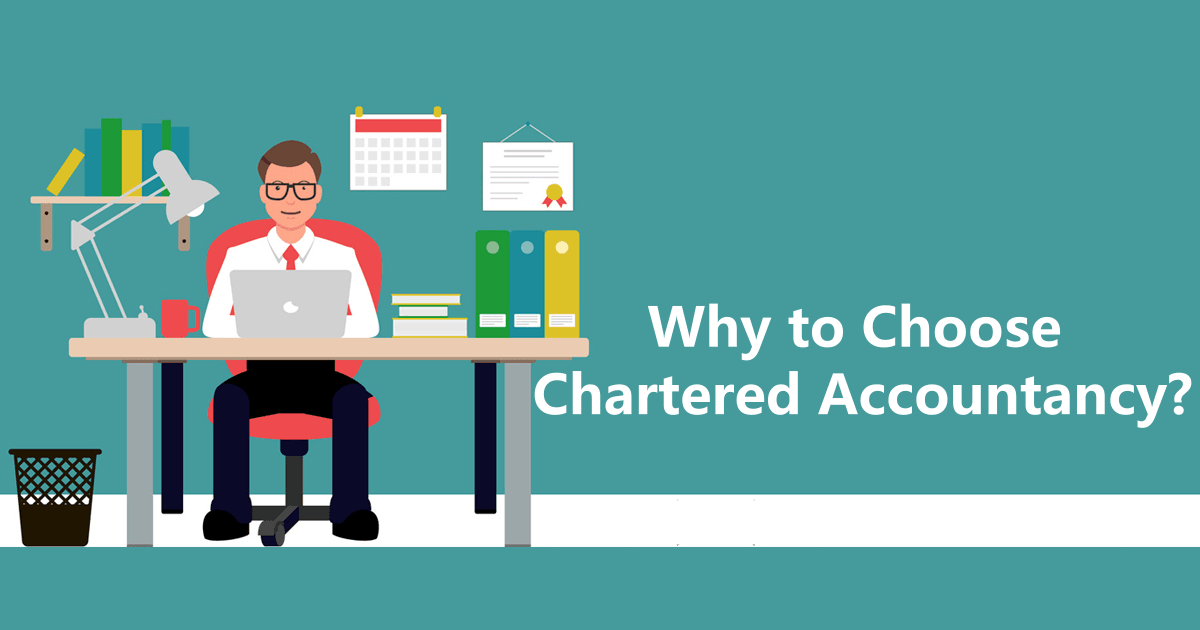
We have listed the best Chartered Accountancy course as the first professional course after BCom that focuses on accounting, taxation, auditing, and financial management. It is one of the most sought-after courses after completing a Bachelor of Commerce (BCom). This globally recognized course aims to equip students with the skills and knowledge required to succeed in finance, accounting, auditing, and taxation.
There are three levels of CA course: the first stage is Foundation, the second is Intermediate, and the third is Final. Also, the duration of the CA course ranges from four to five years depending on the student’s pace and how quickly they clear the exam levels.
There are two modes of admission to the CA course: Foundation route and Direct Entry route. The eligibility for the Foundation route is that you must have cleared your 12th board exams. Additionally, for the Direct Entry route, students must have completed their graduation.
After passing the CA exam, you will get the designation of CA and you can work in many private firms and government agencies or start your own firm and offer services to different clients. The starting of a CA salary in India ranges from 6 lakhs to 15 lakhs per annum.
Pros:
- High demand in the job market
- Recognition globally
- High salary packages
- Opportunity to work in various industries
- Personal and professional growth
Cons:
- Long and challenging course
- High competition
- It requires a lot of hard work and dedication
| Particulars | Details |
| Eligibility | Class 12th pass or Graduation; different levels need passing the prior levels or meeting other eligibility requirements. |
| Fees | Approximately Rs 87, 300 for all the levels; excluding coaching. |
| Duration | 4.5 years – 5 years |
| Top Employers | EY, Deloitte, KPMG, PWC and BDO |
| Job Opportunities | Accounts Assistant, Audit Assistant, Tax Assistant |
| Salary | INR 7-8 LPA Average Salary |
| Best Institute | VSI Jaipur, Aldine, Swapnil Patni Classes, etc. |
#2. Cost & Management Accountancy

The next option in the list of courses after B.Com is Cost and Management Accountancy. The CMA course emphasizes on the development of capabilities in financial planning, cost management, decision making, and resource management. Moreover, this course will provide learners with the knowledge and skills required to become successful management accountants.
Just like CA, CMA also has three levels – Foundation, Inter and Final. Also, there are two modes of admission to the CMA course: Foundation and Direct Entry route. The exam eligibility for the Foundation route is that you must have cleared your 12th board exams. For the Direct Entry route, students must have completed their graduation.
Moreover, the job prospects after completing the Cost and Management Accounting course are excellent. Professionals can find work in several industries, including manufacturing, finance, insurance, and consulting. The starting CMA salary in India is 4-10 lakhs per annum.
Pros:
- Job security
- Career growth opportunities
- High demand
Cons:
- Rigorous curriculum
- Intensive study hours
- Competitive job market
| Particulars | Details |
| Eligibility | Class 12th pass or Graduation |
| Fees | Approx Rs 54,100 for three levels excluding coaching. |
| Duration | 3 years |
| Top Employers | Hyundai Steels, Accenture, ONGC, Tata Steel, Deloitte, Wipro |
| Job Opportunities | Management Accountant, Financial Analyst, Cost Accountant, Finance Manager, Internal Auditor, etc |
| Salary | Rs 3 lakhs for beginners, can go high up to 40 lakhs |
| Best Institute | Institute of Cost Accountants of India (ICMAI) |
#3. Company Secretary

Company Secretaryship It is a professional program that can be pursued after attaining a Bachelor of Commerce degree. In India, it is a highly respected and rewarding professional opportunity.
A Company Secretary (CS) ensures that an organization meets all the necessary legal and regulatory requirements. Also, CS coordinates between the firm and its stakeholders, such as shareholders, directors, and government authorities.
There are three levels of CS course exam: first steps is Foundation, Executive, and Professional. Each level has its own syllabus and prerequisites. If you are a graduate, you need to appear only in these two levels, i.e. Executive Program and Professional Program. If you want to prepare for CS from class 12, you need to appear in all three levels.
Pros:
- A wide range of topics covered in the syllabus
- Opportunity to work with top companies in India
Cons:
- Limited job opportunities at entry-level
- High competition for job roles
- Payscale is not up to the mark.
| Particulars | Details |
| Eligibility | Class 12th pass or Graduation |
| Fees | Approximately Rs 30,000 |
| Duration | Three years |
| Top Employers | EY, KPMG, PWC, Deloitte, TATA Group |
| Job Opportunities | CS, Compliance Officer, Assistant CS, Legal Advisor, Financial Consultant |
| Salary | 6 lakhs per annum |
| Best Institute | Institute of Company Secretaries of India (ICSI) |
#4. Certified Public Accountant (CPA)

Certified Public Accountant (CPA) is another good career opportunity after Bcom. The CPA credential is internationally recognized and opens up several employment prospects in accounting, finance, and taxation. CPA is a four-hour test consisting of four sections. These parts are designed to evaluate the candidates’ abilities and knowledge.
Moreover, the applicant must complete all portions within the testing timeframe of 18 months. You may complete any part in any order during a given testing window. You can take any number of tests within the testing window, but you cannot take the same section again.
If you fail a section of the examination, you cannot retry it until the following testing session starts. Each portion of the CPA test has a four-hour time limit. Moreover, the sections consist of the following:
- Auditing and Attestation (AUD)
- Business Environment and Concepts (BEC)
- Financial Accounting and Reporting (FAR)
- Regulation (REG)
To earn a CPA license, the candidate must finish 150 hours of CPA coursework every semester.
Pros:
- High demand for professionals with this certification
- Excellent salary packages
- Global Recognition
Cons:
- Lengthy certification process
- High exam fees
- Strict ethical and professional standards
| Particulars | Details |
| Eligibility | Indian students must have completed BBA in Finance and Accounts, BBA in Accounting, BCom in Accounting, MCom or an MBA in Accounting or Finance. |
| Fees | 3.5 to 3.6 lakhs |
| Duration | 12-18 Months |
| Top Employers | Deloitte, KPMG, etc. |
| Job Opportunities | Financial Analyst, Investment Banker, Management Consultant, Business Analyst, etc. |
| Salary | 6 lakhs per annum |
| Best College | Christ University, Bangalore, Shri Ram College of Commerce, Hindu College, etc |
#5. Master of Business Administration
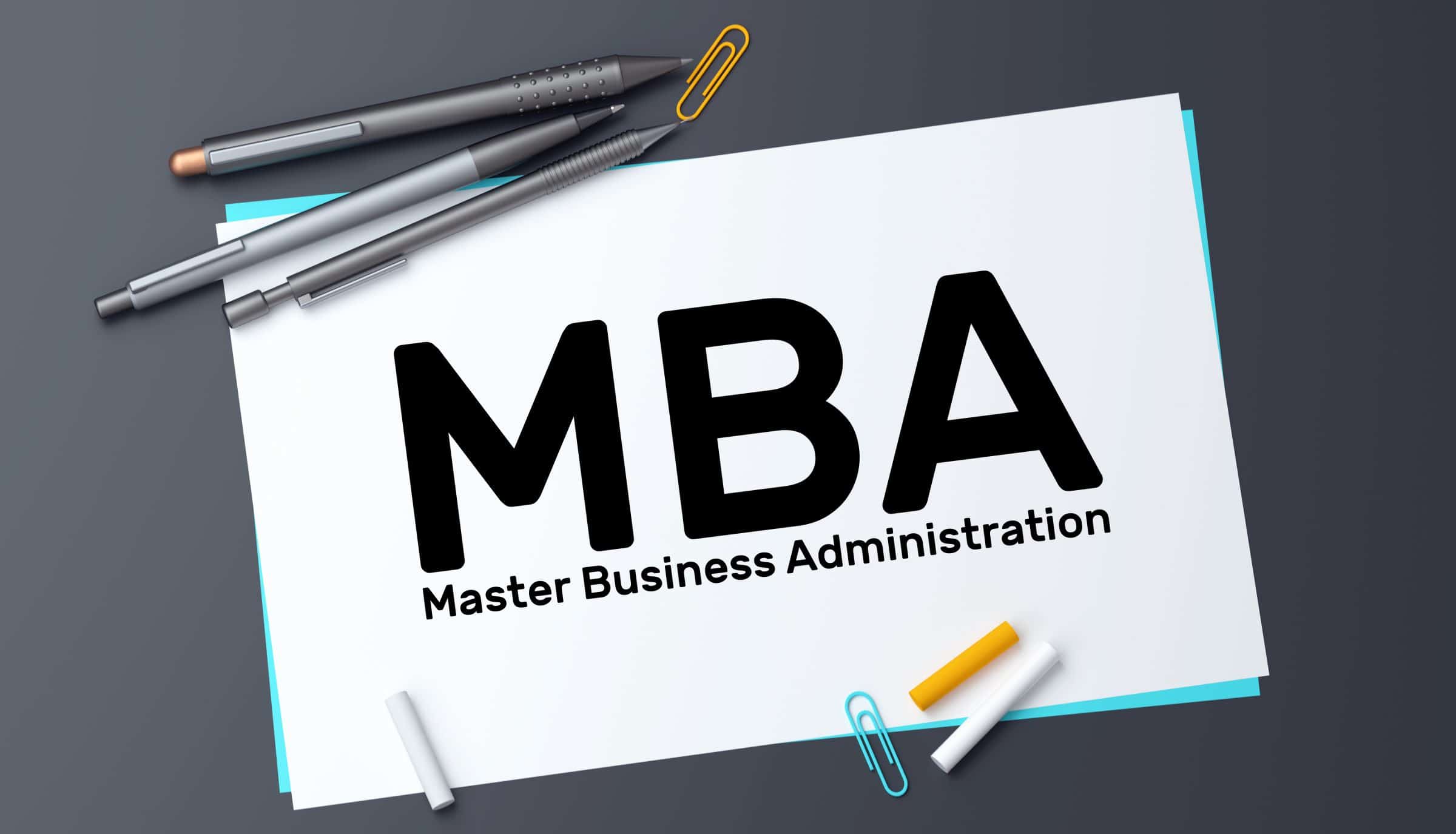
If you are looking for a high-paying PG course with placements after BCom, you can consider the Master of Business Administration (MBA). The Master of Business Administration (MBA) provides students with advanced business and management capabilities. Moreover, it is a popular choice for students who have earned their Bachelor of Commerce (BCom) and want to improve their employment opportunities.
The MBA offers several specializations, including human resources and operations, finance, marketing, and more.
Pros of pursuing an MBA after BCom:
- Provides advanced business and management skills
- Expands career opportunities
- Increases earning potential
- Develops leadership and communication skills
Cons of pursuing an MBA after BCom:
- Can be expensive
- Requires a significant time commitment
- May not be necessary for all career paths
| Particulars | Details |
| Eligibility | Bachelor’s degree in any discipline |
| Fees | Rs 5 lakhs to Rs 30 lakhs |
| Duration | Two years |
| Top Employers | Amazon, Apple, BCG, JP Morgan and other MNCS |
| Job Opportunities | Business analyst, Consultant, Marketing Manager, Operations Manager, Financial Analyst |
| Salary | The average starting is between Rs 5 lakhs to Rs 9 lakhs |
| Best College | IIMs, ISB, SPJIMR, FMS Delhi, and more |
#6. Digital Marketing

Digital marketing is a popular job-oriented course after B.Com in today’s time, which comes with placements among graduates. As we know, digital marketing is becoming an integral part of the contemporary marketing strategy.
This involves advertising products and services using digital channels such as search engines, social media, email and mobile applications. After completing B.Com, it may be a wise decision to pursue a digital marketing course due to the many job opportunities available in this industry.
Moreover, there are many options for digital marketing courses, including short-term courses, MBA in digital marketing, and diploma courses in digital marketing.
Pros:
- Among the popular short-term courses after Bcom
- Numerous job opportunities in Digital Marketing
- Helps to gain knowledge and skills in Digital Marketing
- Enables individuals to specialize in a particular area of Digital Marketing.
- Provides a higher salary and growth opportunities
Cons:
- Needs continuous learning and updates with the latest trends
- The job role can be demanding and requires individuals to work under tight deadlines.
- The competition in the job market can be intense and needs constant learning to meet the changes in the digital marketing world.
| Eligibility | Anyone above 18 years with basic computer and internet knowledge |
| Fees | Rs 30,000 – Rs 5 lakhs, depending on the type or course and institute you choose |
| Duration | 4 months – 2 years based on the type of course you choose |
| Top Employers | Infosys, Wipro, Accenture, HCL Technologies, Cognizant, etc. |
| Job Opportunities | DM executive, DM Specialist, DM Manager, SEO Executive, SMO Expert, Content Manager, PPC Expert, and more |
| Salary | Rs. 2.5 – 5 LPA |
| Best Institute | IIDE, upGrad, Simplilearn, Quibus Trainings, etc. |
#7. Chartered Financial Analyst (CFA)
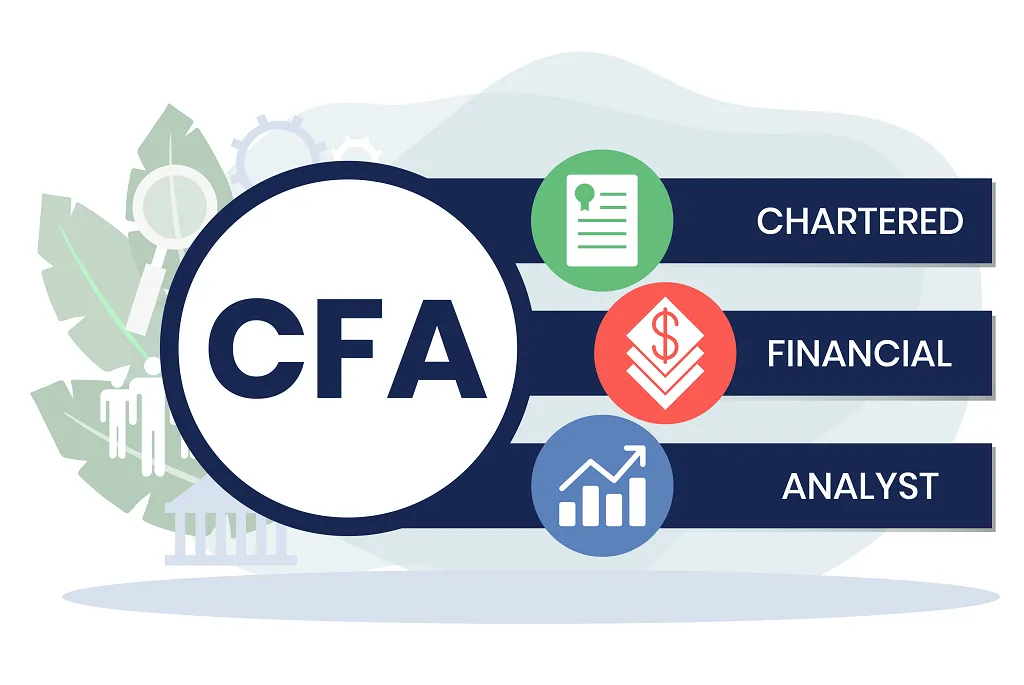
The next professional courses to be pursued after B.Com include Chartered Financial Analyst or CFA.
CFA provides advanced understanding and skills of investing and financial management. Employers in the financial business place a premium on this internationally recognized certificate.
Additionally, students with B.Com degree can enroll for this course to expand their financial understanding. In addition, the CFA curriculum focuses on ethical and professional standards, economics, quantitative methods, corporate finance, financial reporting and analysis, equity investing, derivatives, fixed income, alternative investments, and portfolio management.
Furthermore, there are 3 levels of CFA, which include Level 1, Level 2 and Level 3. After passing the first level, candidates can get entry level jobs in companies. Hence, it is a good job-oriented course for students interested in the Accounts field. Advantages:
Pros:
- Globally recognized credential
- Offers in-depth learning of finance and investment management
- High demand in the finance industry
- Higher salary potential
- Enhances career opportunities
Cons:
- The exam is challenging and requires a lot of preparation
- It can be expensive to pursue
- It requires a lot of time commitment
| Eligibility | Graduate with four years of relevant experience |
| Fees | Approximately Rs 2 lakhs |
| Duration | 1.5 to 4 years |
| Top Employers | JP Morgan, Goldman Sachs, Morgan Stanley, BlackRock, PwC |
| Job Opportunities | Financial analyst, investment analyst, portfolio manager, research analyst, etc |
| Salary | The starting salary can be Rs 4 lakhs |
| Best Institute/ College | CFA Institute, Amity University, Noida, G.D. Goenka, Gurugram, ICOFP, New Delhi, etc |
#8. Data Science

Data Science is among the job-oriented courses after Bcom which is a fast-expanding subject that integrates statistical analysis, computer science, and business skills to assist firms in making decisions based on data.
The course may be characterized as using several scientific disciplines, including mathematics, calculus, charts, algorithms, graphs, and computer programs. It is the branch of science that also involves business or commerce-related skills.
With data science, experts may extract crucial pieces of information, insights, and other answers from massive raw data that would have never been discovered otherwise.
Large enterprises worldwide demand individuals with expert understanding in this industry to deliver essential insights, choices, or solutions based on their massive amounts of data.
Since universities would require students with Science backgrounds, commerce students can opt for Data Science certification courses. You can head to Coursera, edX, Simplilearn, and Udemy.
Pros:
- Practical exposure to various data science tools and techniques, making students job-ready
- Demand for data scientists is high
- The course offers excellent career prospects
Cons:
- The course is intensive and requires a strong background in mathematics and statistics.
- The course fees can be high, making it inaccessible to some students.
| Eligibility | IT Bangalore, SP Jain School of Global Management, NMIMS |
| Fees | Rs. 3-8 lakhs |
| Duration | The full-time course is 3 years; 6-12 months for a certification course |
| Top Employers | Amazon, Google, IBM, Microsoft, Flipkart |
| Job Opportunities | Data Scientist, Machine Learning Engineer, Data Analyst, Business Analyst |
| Salary | Rs. 5-20 lakhs per annum |
| Best Institute/ College | IIIT Bangalore, SP Jain School of Global Management, NMIMS |
#9. Stock Broking

Stockbroking courses are a great option if you are searching for short-term courses after Bcom. A profession in the stock market is an excellent alternative since new employment opportunities have emerged in several organizations.
A stockbroker may operate for various Indian and International agencies and businesses. Moreover, they may discover attractive career prospects with Insurance Companies, Brokerage Firms, Investment Banks, Mutual Funds, Investment Consultancies, etc.
A stockbroker works as the client’s agent while executing stock transactions. Purchasing and selling stocks and other assets is called “stockbroking.” The three kinds of stockbrokers are estate brokers, discount brokers, and full-service brokers.
You can opt for NISM Certification Courses or enroll for Post Graduate Diploma in Securities Market (PGDSM) courses.
Pros:
- These courses provide industry-relevant information and skills to help you enter stock brokerage.
- A stock broking course can give you stock market information and abilities to become a stockbroker.
- It opens up numerous job opportunities.
Cons:
- Market swings and economic conditions might affect earnings and job security in stock broking.
| Eligibility | For short-term or online courses, |
| Fees | Rs 1000, – Rs 1,50,000 depending on the course |
| Duration | A few months to one year depending on the course |
| Top Employers | Reliance Securities Ltd., Motilal Oswal Securities, HDFC Securities, Kotak Securities Ltd. etc. |
| Job Opportunities | Stockbrokers, Investment Banker, Portfolio Managers, Financial Analysts, etc |
| Salary | Rs 2.5 lakhs to Rs 9.5 lakhs per annum |
| Best Institute | NISM Certification Courses |
#10. Artificial Intelligence – Best IT/Computer Course After Bcom

If you are searching for IT courses after Bcom then the Artificial Intelligence course is a great option.
Artificial Intelligence is a technique for programming a robot under the control of a computer, or a piece of program to think intellectually similar to the human brain.
Artificial Intelligence (AI) is the fastest-growing industry globally, and competent professionals are in high demand in India. Individuals with a BCom degree might pursue various AI courses to enhance their skills and professional possibilities.
Artificial Intelligence is connected to machine learning and is one of the most popular technologies for producing robots or software with human-like capabilities.
Several institutions and online platforms offer Artificial Intelligence courses, such as Udemy, Coursera, edX, IIT Madras, IIT Bangalore, etc.
If you are considering pursuing AI courses after BCom, you can opt for certification courses, as PG courses are offered to students with science backgrounds.
Pros:
- High demand for AI professionals in India.
- The course is industry-focused and provides practical knowledge.
Cons:
- The course fees can be expensive.
| Eligibility | Depends on the course and institute you choose |
| Fees | Rs 40,000 – Rs, 2,50,000+ depending on the course |
| Duration | Full-time course for 2 years; Short term courses for 6-12 months |
| Top Employers | Google, Amazon, Microsoft, IBM, Accenture, TCS |
| Job Opportunities | Data Scientist, Machine Learning Engineer, Business Intelligence Analyst, AI Research Scientist, AI Developer, etc. |
| Salary | The average salary is Rs 7.2 lakhs |
| Best Institute | Udemy, Coursera, edX, IIT Madras, IIIT Bangalore |
#11. Investment Banking
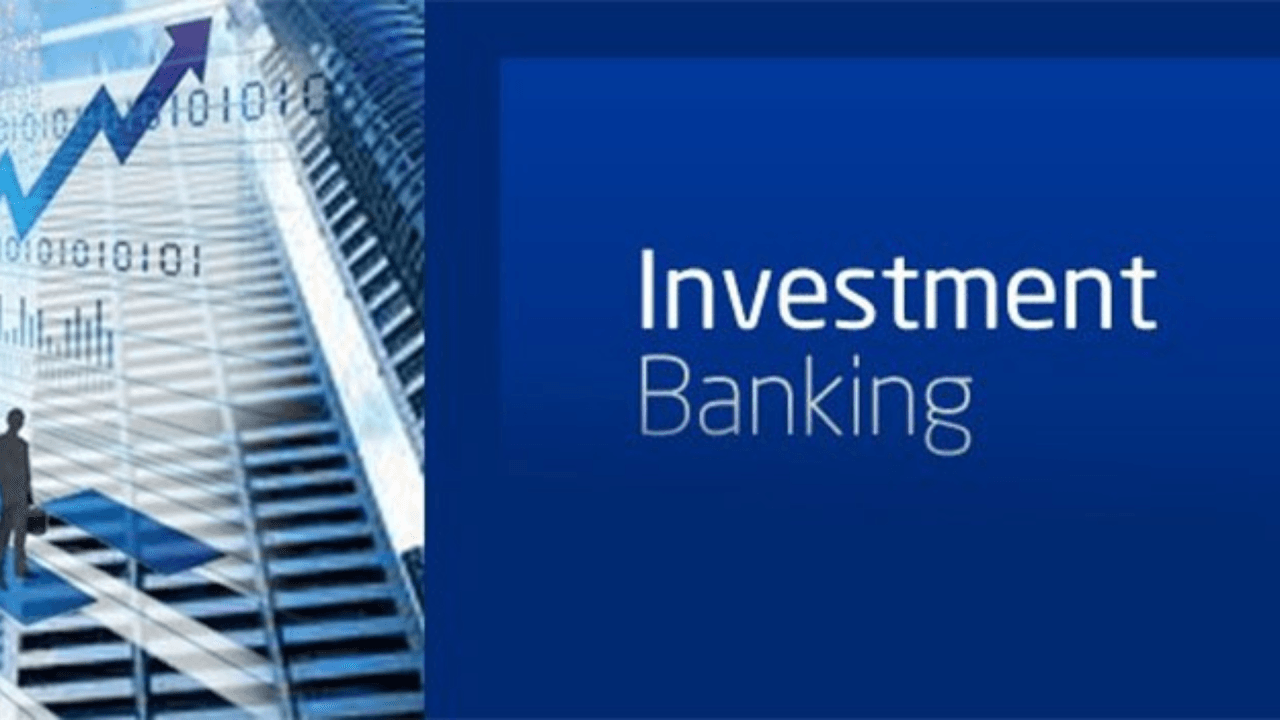
If you are looking for banking courses after Bcom, investment banking is a great option.
Investment banking is a bank or financial institution segment that provides underwriting (capital raising) and mergers and acquisitions (M&A) advice services to governments, businesses, and institutions.
A financial specialist who controls the finances and investment choices of a corporation, bank, or financial institution is an investment banker. It is among those professions where a degree alone is insufficient; you also need a passion for numbers and practical experience.
The position’s responsibilities include a few of the following:
- Capital-raising.
- The administration of securities and investments.
- Fundraising from the financial markets.
Investment bankers also provide crucial financial approaches for mergers and acquisitions and wealth management.
You can opt for an MBA in Finance go with PG Program in Investment Banking and Capital Markets, or opt for short-term certification courses. For full-time courses, you need to sit for CAT, XAT, SNAP, GMAT, and NMAT.
| Eligibility | Graduate from a recognized university with 50% aggregate in any specialization. |
| Fees | Rs 20,000 – Rs 5,00,000 depending on the course type |
| Duration | 2 years in case of full-time courses; |
| Top Employers | J.P. Morgan, Goldman Sachs, Morgan Stanley, Ernst & Young, Deloitte, KPMG |
| Job Opportunities | Investment Banking Analyst, Financial Analyst, Equity Research Analyst, etc |
| Salary | The average salary is Rs 4 lakhs per annum, which can go up to 30 lakhs/per annum |
| Best College | IIM Kozhikode, IIM Lucknow, IIM Rohtak, etc |
#12. Association of Chartered Certified Accountants (ACCA)

Other professional job-oriented courses after B.Com include Association of Chartered Certified Accountants. The Association of Certified Chartered Accountants (ACCA) is a global organization that provides students with an excellent professional accountancy career.
ACCA subjects are categorized into Foundation, Knowledge, Skills and Professional. Students may qualify for a number of ACCA exemptions according to their educational background. Students with B.Com or M.Com background will sit for nine exams instead of thirteen, while those with CA will sit for four exams instead of thirteen.
Furthermore, the admission process is based on both admission and merit. The examination is conducted four times a year – March session, June session, September session and December session. Some colleges accept college admission scores like GATA, AJEE, GGSIPU etc.
Pros:
- Global recognition of the certification
- Better job opportunities
- Comprehensive curriculum that covers all aspects of accounting and finance
Cons:
- High fees
- Rigorous exam schedule.
| Eligibility | The applicant needs to be 18 years old, finished 10+2 with an overall minimum score of 65% in mathematics/accounts and English, and 50% in every other subject. |
| Fees | Rs 1 lakhs to Rs 3 lakhs |
| Duration | 1-7 years |
| Top Employers | EY, Deloitte, PwC, KPMG, Grant Thornton |
| Job Opportunities | Accountants, Business Analyst, Taxation Expert, Finance managers, etc |
| Salary | 3.5-4 lakhs per annum |
| Best College | Christ University, Global Centre for Entrepreneurship and Commerce, Symbiosis College of Arts and Commerce, |
#13. Master of Commerce

If you are looking for easy PG courses after Bcom, then Master of Commerce or M.com can be your option. Master of Commerce (M.Com) is a postgraduate education focusing on business, management, accounting, and economics. Further, the two-year degree course opens doors in the business and financial industries.
It provides accounting, finance, taxation, and human resource management concentrations. This is a four-semester curriculum with UGC accreditation and a choice-based credit system.
Candidates receive a Master of Commerce degree from their particular university after finishing a two-year curriculum. The admission process in colleges differs and the eligibility is B.com graduate.
Pros:
- Provides in-depth knowledge about accounting, finance, etc
- It can provide various career opportunities for graduates.
Cons:
- It will limit students to only the commerce industry.
| Eligibility | 50% in graduation from a recognized institute |
| Fees | Rs. 50000 to Rs. 200000 per annum, varies depending on the college |
| Duration | 2 years |
| Top Employers | Banks, Insurance Companies, Investment Banking Companies, etc |
| Job Opportunities | Investment Banker, Tax Consultant, Loan Counsellor, Insurance Manager, etc |
| Salary | |
| Best College | Shri Ram College of Commerce (SRCC), New Delhi, Hansraj College, New Delhi, Hindu College, Delhi, St. Xaviers College, etc |
#14. Bachelor of Education (B.ED)

B.Ed is the abbreviation for Bachelor of Education, which is a two-year course. Moreover, it prepares students for teaching careers, B.Ed. graduates can rise to profitable careers as educators, school counsellors, and school administrators.
In India, various institutions provide the Bachelor of Education curriculum. Those who wish to pursue a profession in the teaching industry are required to complete a B.Ed. Course.
Students can sit for numerous entrance exams to get into a B.Ed college. A few popular entrance exams are TS EDCET, IGNOU B.Ed, VMOU B.Ed, etc.
Pros:
- There is an increase in demand for teachers throughout India.
- It offers specialization in numerous courses.
- Also, it focuses on the personal and professional development of an individual.
Cons:
- There is intense competition.
- The initial pay might be low.
| Eligibility | Graduate from a recognized university in commerce or any other stream with a 50% aggregate |
| Fees | Rs 45,000 – Rs 2 lakhs per annum |
| Duration | 2 years |
| Top Employers | Schools across India |
| Job Opportunities | Primary School Teacher, High School Teacher, Head Teacher, Secondary School Teacher, etc |
| Salary | 3.5 lakhs per annum |
| Best Institute/ College | Lady Shri Ram College for Women, Delhi; Calicut University – [CU], Calicut, Delhi University, (DU), etc. |
#15. Graphic Designing

If you are exploring creative career options after Bcom, then Graphic design might be the one you are looking for. Graphic designers create aesthetically appealing content that conveys a message, narrative, or concept.
The graphic designing course teaches students how to create logos, cover pages, previews, and banners. To learn graphic designing at a professional standard, students may seek certification, a diploma, or a degree.
As a Bcom graduate, you can enroll for M.Des, opt for certification courses from any local institute, or choose online courses. Depending on your chosen college, you must appear for AIEED, SEED, or any other entrance exams.
Pros:
- Numerous job opportunities as a graphic designer
- Potential to work remotely or work as a freelancer
- Various job profiles
Cons:
- You need to be creative.
- The course fees can be high.
- The learning process is long and challenging as you must learn all the basics and other essentials.
| Eligibility | Graduate from a recognized university with a minimum of 50% |
| Fees | Rs. 2 lakhs to Rs. 3 lakhs per year |
| Duration | M.Des is for 2 years. Other short courses can take around 3 months – 12 months |
| Top Employers | Wipro Technologies, General Motors Design, Accenture, Think Design, Deloitte, etc |
| Job Opportunities | Graphic Designer, Creative Director, Art Director, Branding Specialist |
| Salary | Rs 6.4 lakhs average |
| Best College | INSD PUNE – International School of Design, Vishwakarma University, Pune, LPU Jalandhar – Lovely Professional University, DY Patil International University, etc |
#16. Web Designing
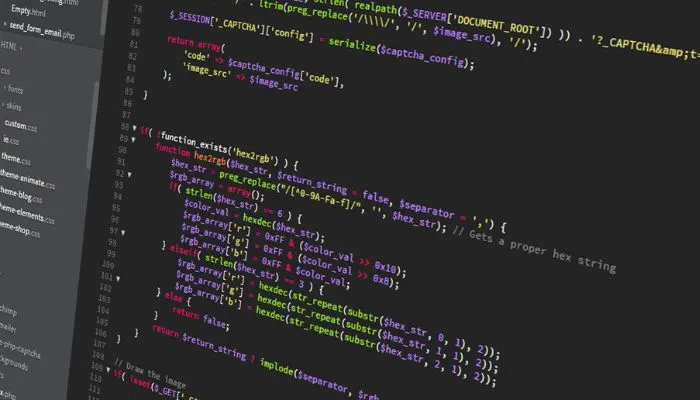
B.Com graduates who intend to pursue a career in website design and development frequently enroll in courses in web design. This course equips students with the information and skills to design, manage, and maintain websites.
Moreover, it includes web programming languages, visual design, user experience design, and multimedia.
You can enroll for PG courses or opt for online courses. Also, you can sit for GATE, MAT, NMAT, etc., to get college admission.
Pros:
- A diverse range of career opportunities
- Various job roles
- High-pay as your experience grows
Cons:
- Highly competitive industry
- Developers must continuously update their skills to remain relevant
- Prior coding experience can be beneficial.
| Eligibility | Graduate with 50-55% aggregate |
| Fees | Rs 2 lakhs – Rs 10 lakh |
| Duration | Full-time – 1-2 years; short-term courses 6 months – 1 year |
| Top Employers | HCL Technologies Limited, Cognizant, Infosys Limited, Wipro Limited, and other firms |
| Job Opportunities | Web Developer, Front-End Developer, UX Designer |
| Salary | Rs 3 – 4 lakhs per annum |
| Best Institute/ College | Symbiosis Institute of Web Design, ZEE Institute of Creative Arts, etc. |
#17. Business Accounting and Taxation (BAT)

If you are searching for accounting, taxation, and finance courses after B.com, then Business Accounting and Taxation (BAT) can be a great choice. The objective of the Business Accounting and Taxation curriculum is to offer students knowledge and understanding of Accounting concepts, taxation, payroll policies, and the core disciplines of Economics.
The BAT training educates you with the needed information and abilities to manage the company with diverse Sales, Accounting, and Tax divisions.
Students with B.Com from an accredited college can enroll in a BAT course. Before admission, certain institutions may additionally require students to pass an entrance exam. Course duration usually ranges from six to twelve months, based on the institute and curriculum.
Pros:
- Wide range of career opportunities in various industries
- Good earning potential
Cons:
- Need to remain regularly updated with all the changes in accounting, taxation laws, etc
| Eligibility | B.com graduate |
| Fees | Rs 30,000 – Rs 50,000 |
| Duration | 6-12 months |
| Top Employers | Ernst & Young, PwC, Deloitte, KPMG, Tata Consultancy Services, Wipro |
| Job Opportunities | A few of the career opportunities include Accountant, Tax consultant, Financial analyst, Auditor, Business consultant, etc |
| Salary | Rs 3 lakhs – 6 lakhs average salary |
| Best Institute | EduPristine, IIMSkills, etc |
#18. Financial Risk Management (FRM)

Financial Risk Management is a popular post-B.Com course for finance enthusiasts focusing on identifying, evaluating, and managing financial risks.
Further, the course teaches children how to quantify and reduce risks associated with various financial assets, including stocks, bonds, commodities, currencies, and derivatives.
The course also equips students with the skills and information required to work in businesses’ finance and risk management divisions. It has two parts: Part 1 and Part 2.
Pros:
- High demand for risk management professionals Excellent career prospects
- Competitive salary
Cons:
- A rigorous and challenging curriculum
- High competition
- The need for continuous learning and upskilling
| Eligibility | No minimum requirements to sit for the exam. |
| Fees | The total fees can be approximately over Rs 3 lakh |
| Duration | Minimum 1 year, depending on the student’s pace |
| Top Employers | Citigroup, JPMorgan Chase, Goldman Sachs |
| Job Opportunities | Market Risk Manager, Commercial Risk Manager, Regulatory Risk Manager, etc |
| Salary | Rs 9-10 lakhs per annum |
| Best College | Indian Institute of Quantitative Finance, Mumbai, Fintelligents, Mumbai. |
#19. Post Graduate Diploma in Human Resource Management

Among the diploma courses after Bcom is the Post Graduate Diploma in Human Resource Management. Post Graduate Diploma in Human Resource Management (PGDHRM) is a popular degree for BCom graduates who wish to pursue a career in HR.
This course offers students the skills and information essential to managing several elements of human resources, including recruiting, employee relations, training and development, compensation and benefits, and HR rules and procedures.
The syllabus for PGDHRM includes various topics such as Human Resource Management, Organizational Behavior, Recruitment and Selection, Training and Development, Performance Management, Compensation Management, HR Analytics, and Labor Laws.
Some popular entrance exams for PGDHRM include CAT, MAT, XAT, etc.
Pros:
- A wide range of career opportunities
- High demand for HR professionals
- The chance to work in various industries
Cons:
- A high level of competition for top jobs
- The fees can be high
| Eligibility | Bachelor’s degree with 50% marks or varies from various institutions; you need to score in competitive exams to secure a seat in the preferred college |
| Fees | Rs 10 lakhs – Rs 20 lakhs; depending on the college |
| Duration | 2 years |
| Top Employers | TCS, Infosys, Wipro, Accenture, Deloitte, ICICI Bank, Amazon, TATA Consultancy Services |
| Job Opportunities | HR Manager, Recruitment Manager, Training and Development Manager, Compensation and Benefits Manager, HR Consultant |
| Salary | Starting Salary Rs 4-5 lakhs |
| Best College | XLRI Jamshedpur, NMIMS Mumbai, Symbiosis Pune |
#20. Post Graduate Diploma in Supply Chain Management

Post Graduate Diploma in Logistics and Supply Chain Management is a 1- or 2-year diploma or postgraduate program, based on the candidate’s enrollment.
The course covers inventory management, logistics, transportation, and procurement to name a few. Moreover, this course is perfect for those who wish to expand their supply chain management abilities and expertise.
To be eligible for this course, applicants must hold a bachelor’s degree from an accredited university in any field. Some institutions may also demand entrance tests or work experience as extra admittance criteria.
Also, to get admission into one of the colleges offering this course, you must appear for CAT, CMAT, ATMA, GMAT, etc.
Pros:
- High demand for supply chain professionals
- Increased earning potential
- Better career opportunities
Cons:
- Rapidly changing industry
- A highly competitive sector
| Eligibility | Bachelor’s degree in any discipline |
| Fees | Rs 50,000 – Rs 14,00,000( For IIMs) |
| Duration | 2 years |
| Top Employers | Amazon, Walmart, DHL, FedEx, Deloitte |
| Job Opportunities | Supply Chain Manager, Logistics Manager, Operations Manager, Procurement Manager, Warehouse Manager |
| Salary | Rs 3 lakhs – Rs 12 lakhs |
| Best College | IIM Kolkata, SCDL, IIM Bangalore, IIM Indore, |
#21. Certificate Course in Dietetics and Nutrition

Certificate Course in Dietetics and Nutrition is a course that teaches the fundamentals of nutrition, healthy eating, and diet planning. This course is appropriate for those who wish to study nutrition and dietetics to become professional nutritionists.
Course duration is between six months and one year, and eligibility requirements vary by institution. Nonetheless, the majority of institutes demand a minimum of 10+2 education.
Some institutes may hold an interview or admission examination to assess the candidate’s knowledge and abilities.
Pros:
- Numerous career opportunities
- Option to start your independent services
- Good pay
Cons:
- It takes time, money, and proper knowledge to become a professional
- Managing people can be difficult at times
| Eligibility | Minimum 10+2 education |
| Fees | Rs 25000 – Rs 1 lakh |
| Duration | 6-12 months |
| Top Employers | Clinical Dietitian, Community Dietitian, Sports Nutritionist, Food Service Manager, Nutrition Consultant, Health counselor etc. |
| Job Opportunities | Clinical Dietitian, Community Dietitian, Sports Nutritionist, Food Service Manager, Nutrition Consultant, Health counsellor etc. |
| Salary | Rs 2 to 5 lakhs per annum |
| Best College | IGNOU, VLCC Institute of Beauty and Nutrition |
#22. Cloud Computing

Cloud computing is an excellent option if you are searching for job-oriented courses after Bcom in the IT field. It is a fast-expanding sector, and following a degree in this subject after completing a BCom can lead to a rewarding job.
The course outline typically contains modules on cloud architecture, cloud security, cloud infrastructure management, virtualization, and more. In addition, students will be asked to create a project that displays their cloud computing expertise in practice.
Since PG courses in cloud computing are only available to B.Sc students, B.Com students can opt for short-term courses in cloud computing from private institutes.
Pros:
- Deep understanding of cloud computing, including its technical and business aspects
- Job prospects in numerous industries, including IT, healthcare, and finance
Cons:
- High fees
- The lengthy duration of the program
- Students with no prior IT knowledge can find the course challenging
| Eligibility | Graduate |
| Fees | Varies depending on the institute; can go upto Rs 3 lakhs |
| Duration | 6 months – 12 months |
| Top Employers | Amazon Web Services, IBM, Google, Microsoft |
| Job Opportunities | Cloud Infrastructure Engineer, Cloud Architect, Cloud Security Specialist, and more |
| Salary | Rs 3-10 lakhs per annum |
| Best Institute | Simplilearn, Edureka, Udemy, etc. |
Courses to Get Government Jobs After BCom & Their Salary
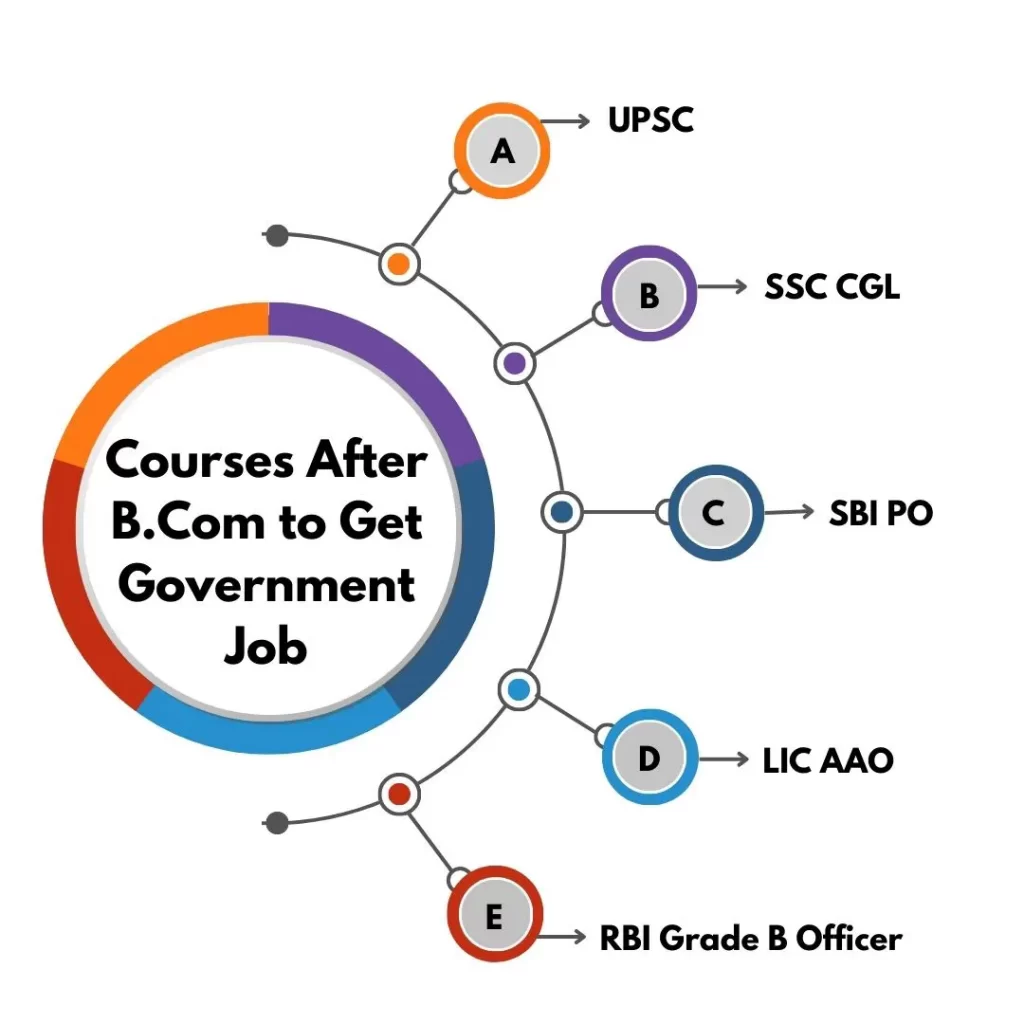
#1. UPSC
Union Public Service Commission conducts examinations for various central and state administrative services such as the Civil Service Examination for Indian Administrative Services (IAS), Indian Police Service (IPS), Indian Foreign Service (IFS), Indian Revenue Service (IRS), etc. It has three stages i.e. Prelims, Finals, and Personality Test (Interviews).
- Eligibility: Candidate must hold a Graduation Degree.
- Minimum Age: 21 years and
- Maximum Age: not more than 32 years
- Salary: Approx Rs 56,100 starting salary
#2. SSC CGL
The SSC CGL examination is conducted by the State Selection Commission to appoint candidates for various Group B and Group C departments and offices under the Government of India.
- Eligibility: Candidate must hold a Graduation Degree. Candidate must have studied economics or mathematics as compulsory or as an elective subject.
- Minimum Age: 18 years
- Maximum Age: 32 years
- Salary: approx Rs 44900 to Rs 142400
#3. SBI PO
The State Bank of India organizes the renowned SBI PO examination to employ probationary officers. The examination evaluates students’ skills in several areas, including reasoning, English language, and general knowledge. SBI PO is one of the most desirable positions in the banking industry.
- Eligibility: Candidates should have a graduation degree. Candidates who graduated last year or awaiting their results can apply provisionally.
- Minimum Age: 21 years
- Maximum Age: not above 30 years
- Salary: Basic pay is Rs 41960 and it is followed by four increments.
#4. RBI Grade B Officer
Reserve Bank of India conducts the country’s most prominent banking exam to appoint candidates in various departments. The examination assesses applicants’ knowledge in finance, management, and economics among other themes, and is regarded as one of the most difficult examinations in the banking industry.
- Eligibility: Candidates at least must have 60% marks in their graduation or 50% for SCs / STs / PwBD.
- Minimum Age: 21 years
- Maximum Age: differs from category to category the candidates belong to.
- Salary: approx Rs 55200 per month
#5. LIC AAO
LIC AAO refers to the Assistant Administrative Officer in the Life Insurance Company. The LIC organizes a competitive test to attract applicants for the position of AAO. The examination assesses applicants’ reasoning, aptitude, and general knowledge.
- Eligibility: Applicants must be a citizens of India and must have a Bachelor’s degree.
- Minimum Age: 21 years
- Maximum Age: 30 years (However, there is age relaxation for different candidates belonging to different categories)
- Salary: Basic pay Rs 53600
Jobs & Salary Packages Available after Completing the Courses After Bcom
After earning a BCom degree, there are various employment opportunities in various industries, including banking, finance, accounting, and insurance, among others.
Major occupations include accountants, financial analysts, tax consultants, and Chartered accountants. The average salary range for these positions is between INR 3 and INR 10 lakhs per year, depending on the work, skills, and experience necessary.
The table below mentions the jobs and salary packages available after completing courses after Bcom;
| Job Role | Average Salary Range (per annum) |
| Accountant | 2-5 lakhs |
| Financial Analyst | 3-8 lakhs |
| Tax Consultant | 3-6 lakhs |
| Investment Banker | 5-12 lakhs |
| Chartered Accountant | 7-25 lakhs |
| HR Manager | 4-10 lakhs |
| Marketing Manager | 4-12 lakhs |
How to Choose the Right Course After BCom for Career Opportunities?

Here are some key factors to consider when choosing the right course after completing your BCom degree for a high salary and better career opportunities:
- Identify your Interests and Career Aspirations: Consider your strengths, interests, and passions to determine which career path fits you best.
- Research the Job Market: Look into the current job market and identify which industries and roles are in demand. This will let you narrow down your options and assist you in making a wise decision about which course to pursue.
- Consider the Reputation of the Course and Institution: Look into the reputation of the course and institution to determine whether it is well-regarded in the industry and if employers are likely to recognize the value of your qualification.
- Consider the Salary and Job Roles: Look into the salary and job roles associated with the course you are considering. Research the typical salaries for different roles in the industry to ensure that you can earn a high salary after completing your course.
- Look into the Career Opportunities Available after Completing the Course: Look into the different career opportunities available after completing the course to determine whether they align with your interests and career aspirations.
- Seek Advice from Professionals: Talk to professionals in the industry to better understand the skills and qualifications that are in demand and the available career paths.
Our Final Thoughts on Courses After Bcom
Pursuing courses after BCom can provide students with specialized skills and knowledge to enhance their employability and career prospects. When choosing a course, students should consider their career goals and interests and the accreditation and reputation of the institution offering the course.
They should also research the curriculum and career prospects associated with the course to ensure that it aligns with their goals. Moreover, pursuing a course after BCom can give students a competitive edge in the job market and help them achieve their career aspirations.
Hence, take your decisions wisely and choose the ones that genuinely interest you and you are confident that you can do well.
Frequently Asked Questions on Best Courses After Bcom
Ques 1. What are the best short-term courses after Bcom?
The top short-term courses after Bcom are Financial Risk Management, Master of Business Administration, and Masters in Management.
Ques 2. Which BCom course is best for a high salary?
The Chartered Accountancy course is the best course to get higher salary packages.
Ques 3. What are the best international courses after BCom?
A few international courses are a Master’s in Finance, a Masters in Business Analytics, a Master’s in Economics, CFA, etc.
Ques 4. Does BCom have scope in the future?
No, Bcom alone will not guarantee a good job in 2023. You have to get additional degrees or other professional short-term courses.
Ques 5. Which professional course is easy after BCom?
Bachelor in Education is an easy professional course you can pursue after BCom.
Ques 6. How to get a job after Bcom?
To get a job after Bcom, you can use different job portals to apply for the jobs. Other than that, you can also get a good job through references.
Ques 7. Can I do a dietician course after Bcom?
Yes, one can become a dietician after BCom by studying short-term courses online or offline. You can do the course from IGNOU or VLCC institute.
Ques 8. What are the best computer courses after Bcom?
The best computer courses after Bcom are Web Developer, IT Analyst, Budget Analyst, Mobile Application Developer, etc.




